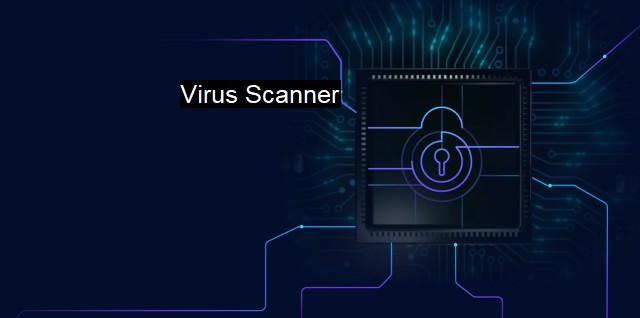What is Virus Scanner?
Defending Against the Digital Threat: The Evolution and Importance of Virus Scanners in Today's Cybersecurity Landscape
A virus scanner, in the context of cybersecurity and antivirus solutions, designates a program designed to identify and eliminate computer viruses, and other kinds of malicious software, also known as malware. The importance of virus scanners has grown exponentially along with the increasing reliance on computers and digital means for personal, professional and institutional activities. As threats continue to evolve and diversify, understanding how virus scanners work and their integral role in ensuring digital security has become paramount.A virus scanner acts as a digital bodyguard, systematically checking computer files and software to detect the presence of any malicious codes or programs. This process, often referred to as a 'scan', can be executed automatically at scheduled intervals, or anytime manually, at the user's discretion. Merely detecting the presence of viruses isn't the endgame, the virus scanner also works actively to neutralize or eliminate the discovered threats, or at least isolate them from causing further damage.
Virus scanners function based on database of known threats. This database or virus dictionary comprises of signature of known malware. The virus scanner scans your files and programs, comparing them with the signature in the database to find any similarity. If a match is found, it classifies the associated file or program as malware.
With the evolving nature of cyber threats, contemporary virus scanners have started incorporating heuristics-based detections. Heuristics are rules that allow the scanner to locate previously unidentified, or zero-day, viruses by analyzing the codes for any behaviors or characteristics resembling those of known malware signatures. This evolutionary step has amplified the robustness of virus scanners, making them capable of proactively handling sophisticated attacks.
While the efficiency of the detection and elimination mechanisms is a crucial metric for any virus scanner, the speed of response to new threats is equally important. Hence, virus scanner companies strive to keep their threat database frequently updated with the latest malware signatures. Users are often prompted to update their scanner software to ensure that it's capable of efficiently reckon with the most current and emerging threats.
While proactive detection is paramount, virus scanner also employ retroactive techniques designed to tackle malware that may have slipped purely detection-based protocols. Techniques like sandboxing allow the scanner to run a suspicious file or program in an isolated environment protecting the system at large from any potential harmful effects.
Premium virus scanner options also offer features like real-time scanning which keep a check on files and applications as they're used or accessed, firewall services to monitor incoming and outgoing traffic from the internet, and phishing protection to prevent unauthorized breach into personal or sensitive information.
Despite the sophisticated mechanisms, it is worth noting that no virus scanner guarantees hundred percent protection from cyber threats. Cybercriminals continue to find innovative ways to exploit vulnerabilities, straining even the most advanced antivirus software. Therefore, regular updates and safe online practices should go hand in hand with the deployment of a virus scanner.
It also warrants mentioning that scanning procedures can sometimes yield 'false positives', thereby erroneously flagging programs as malicious when they are not. It's generally recommended to investigate these flags independently, wherever possible, or consult with a professional service to avoid unwanted data loss.
Virus scanners form an integral line of defense against cyber threats. With an ability to detect, neutralize and prevent the infiltration of malicious programs, they are an absolute necessity for maintaining the privacy and integrity of computers and the information contained within them. Equally important are responsible digital practices, ongoing cybersecurity education and timely software updates, without which any antivirus infrastructure would remain incomplete. As the digital environment remains associated with continuous threats, the demand, sophistication, and versatility of virus scanners, are undoubtedly on a safety-necessitated upward trajectory.

Virus Scanner FAQs
What is a virus scanner?
A virus scanner is a software program that scans and detects malicious software, also known as malware, on a computer or network.Why is a virus scanner important for cybersecurity?
A virus scanner is essential for cybersecurity because it helps protect against malware, which can cause significant damage to a system or network. Malware can steal sensitive information, corrupt files, and even take control of a computer or network.How does a virus scanner work?
A virus scanner works by scanning files and software programs on a computer or network for known signatures of malware. It compares the file against a database of known malware and alerts the user if it finds a match. Some virus scanners also use heuristics to detect new or unknown malware by analyzing the behavior of the file.Are all virus scanners the same?
No, not all virus scanners are the same. Different virus scanners may use different scanning techniques or focus on different types of malware. Some virus scanners may also offer additional features, such as real-time protection, firewalls, and anti-phishing tools. It's important to research and choose a virus scanner that best meets your cybersecurity needs.| | A | | | B | | | C | | | D | | | E | | | F | | | G | | | H | | | I | | | J | | | K | | | L | | | M | |
| | N | | | O | | | P | | | Q | | | R | | | S | | | T | | | U | | | V | | | W | | | X | | | Y | | | Z | |
| | 1 | | | 2 | | | 3 | | | 4 | | | 7 | | | 8 | | |||||||